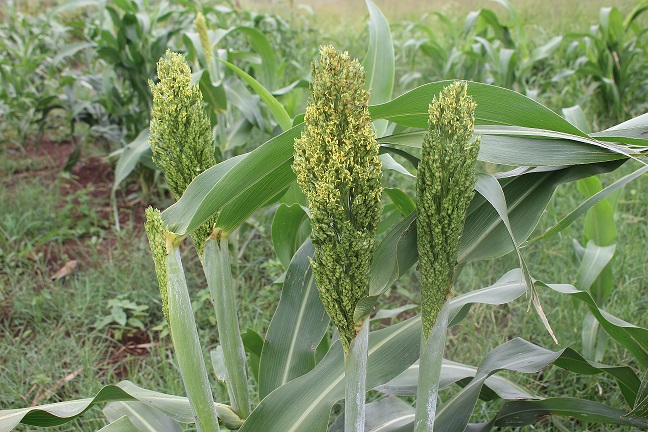From drought to plenty: the Swazi women’s journey of persistence

Isabel Magongo is a 63-year-old widow who suffered greatly from the drought that was affecting the country for the past years. Last year she lost her five goats, the only livestock she had. The situation has remained worse through the long dry spell in the country. She is at the end of her ropes as she spent the little money she had to support her family of 10, five of them her grandchildren. None of the family members were working.
“I love farming but I was not able to plant anything this year because I do not have money for seeds. The drought has made us feel useless. We have the land but we do not have the resources to plant,” she said. However, hope dawned on Isabel when she was chosen among the beneficiaries of the El Nino Food Security Recovery Project.
Isabel has used Conservation Agriculture for her sorghum field. This is a soil management practice that encourages farmers to minimize the disruption of the soil's structure and composition. This also reduces tractor costs. “Thanks to World Vision for providing us with seeds. I am expecting a bumper harvest”, she adds.
The main objective of the project is to improve food availability through support to agricultural production in two regions of the country, Shiselweni and Lubombo. The project trained 190 lead farmers at the start and eventually increased the number to 277 in the two regions, of which 36.1 % are women.
The project also distributed 4200 seed packets of 10kg cowpeas and 4200 seed packets of 5kg sorghum to 4200 smallholder farmers. “We were blessed because after receiving the sorghum and cowpeas seeds, the rains came. We expect a good harvest. Once I harvest I will give a portion to World Vision to share with other vulnerable households, I will sell some and keep some for my family’s consumption,” she says.
The drought has badly affected Isabel’s family. Sometimes they would ask for food from neighbours in order to have something to eat. At times, they would sleep without food. Isabel did everything including weaving chicken nests to sell in the community. When the grass vanished because of the drought, she lost this income opportunity, too.
Zandile Dlamini, World Vision’s Development Facilitator in Mpolonjeni Area said Isabel was selected because she is very hardworking. “She is one of the farmers who is very active. We are confident that she will put the seeds to good use,” Dlamini said.
